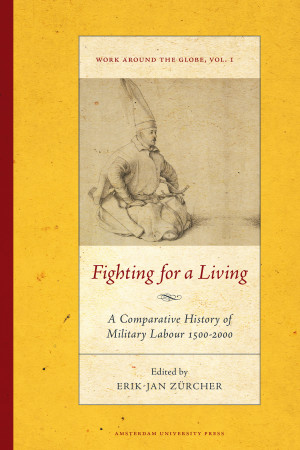1. Introduction: Understanding changes in military recruitment and employment worldwide
Erik-Jan Zürcher
2. Military labour in China, circa 1500
David M. Robinson
3. From Mamluks to Mansabdars: a social history of military service in South Asia, circa 1500 to circa 1650
Kaushik Roy
4. On the Ottoman Janissaries*
Gilles Veinstein
5. Soldiers in Western Europe, circa 1500-1790
Frank Tallett
6. The Scottish mercenary as migrant labourer in Europe, 1550-1650
James Miller
7. Change and continuity in mercenary armies: Central Europe, 1650-1750
Michael Sikora
8. Peasants fighting for a living in early modern North India
Dirk Kolff
9. “True to their salt”: Mechansims for recruiting and managing military labour in the army of the East India Company during the Carnatic Wars in India
Robert Johnson
10. The scum of every country, the refuse of mankind: recruiting the British Army in the eighteenth century
Peter Way
11. Mobilization of warrior populations in the Ottoman context, 1750-1850
Virginia H. Aksan
12. Military employment in Qing dynasty China
Christine Moll-Murata and Ulrich Theobald
13. Military service and the Russian social order, 1649-1861
Elise Kimerling Wirtschafter
14. The French army 1789-1914: Volunteers, pressed soldiers and conscripts
Thomas Hippler
15. The Dutch army in transition: from an all-volunteer force to a cadre-militia army, 1795-1830
Herman Amersfoort
16. Draft and draftees in Italy, 1861-1914
Marco Rovinello
17. Italian colonial troops in East Africa
Uoldelul Chelati Dirar
18. Nation building, war experiences and European models: the rejection of conscription in Britain
Jörn Leonhard
19. Mobilizing military labour in the age of total war: Ottoman conscription before and during the Great war
Mehmet Besikçi
20. Soldiering as work: the all-volunteer force in the United States of America
Beth Bailey
21. Private contractors from the nineteen nineties to the present. A review essay
Yelda Kaya

